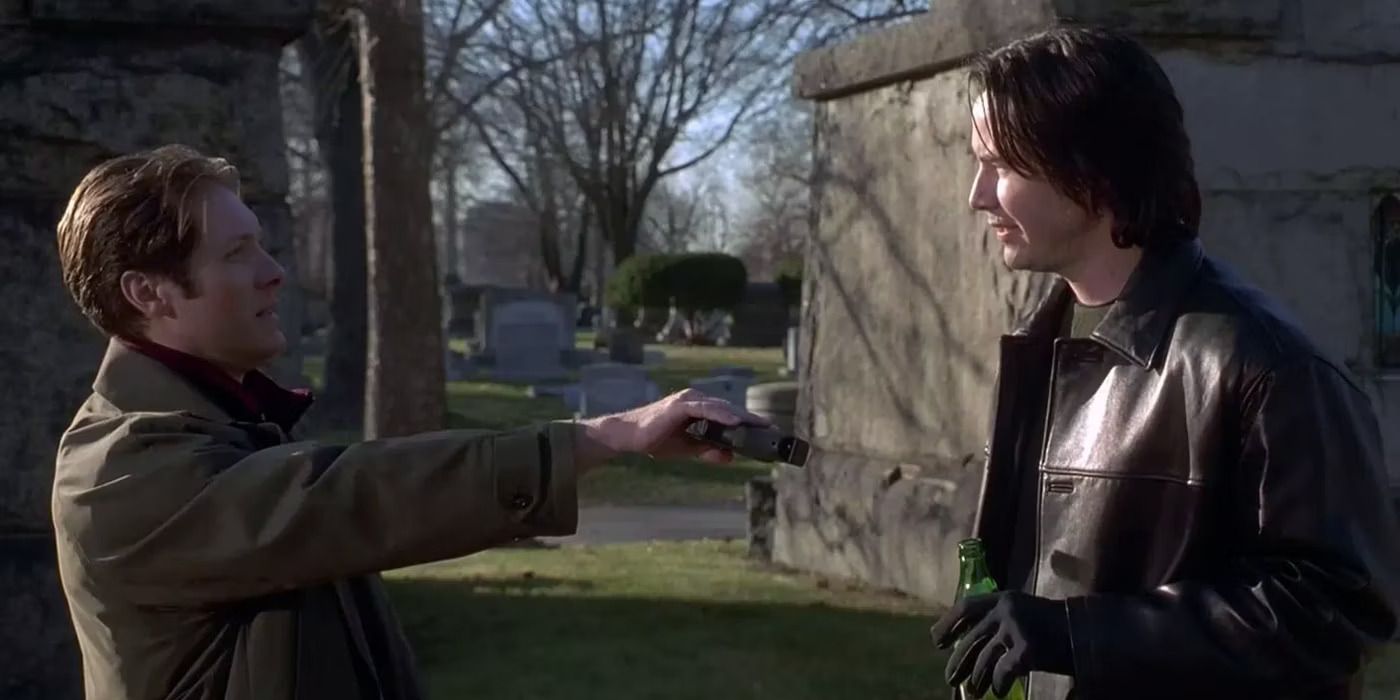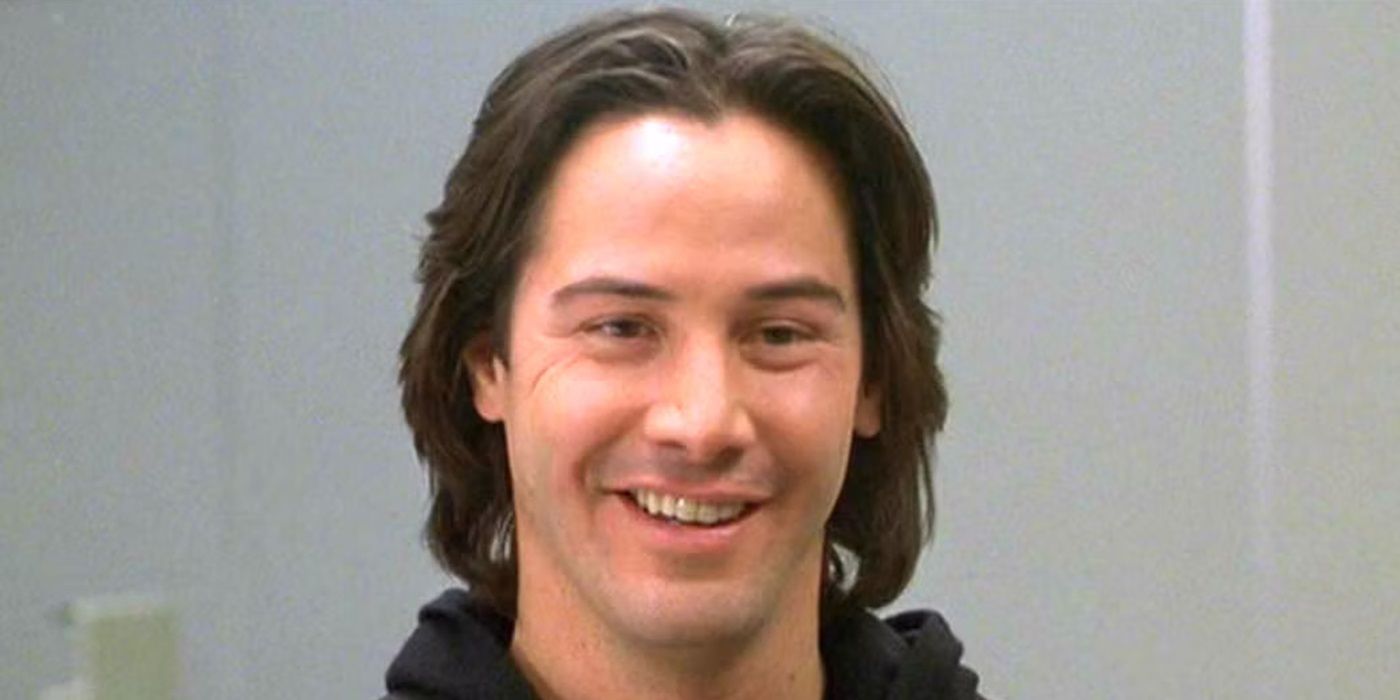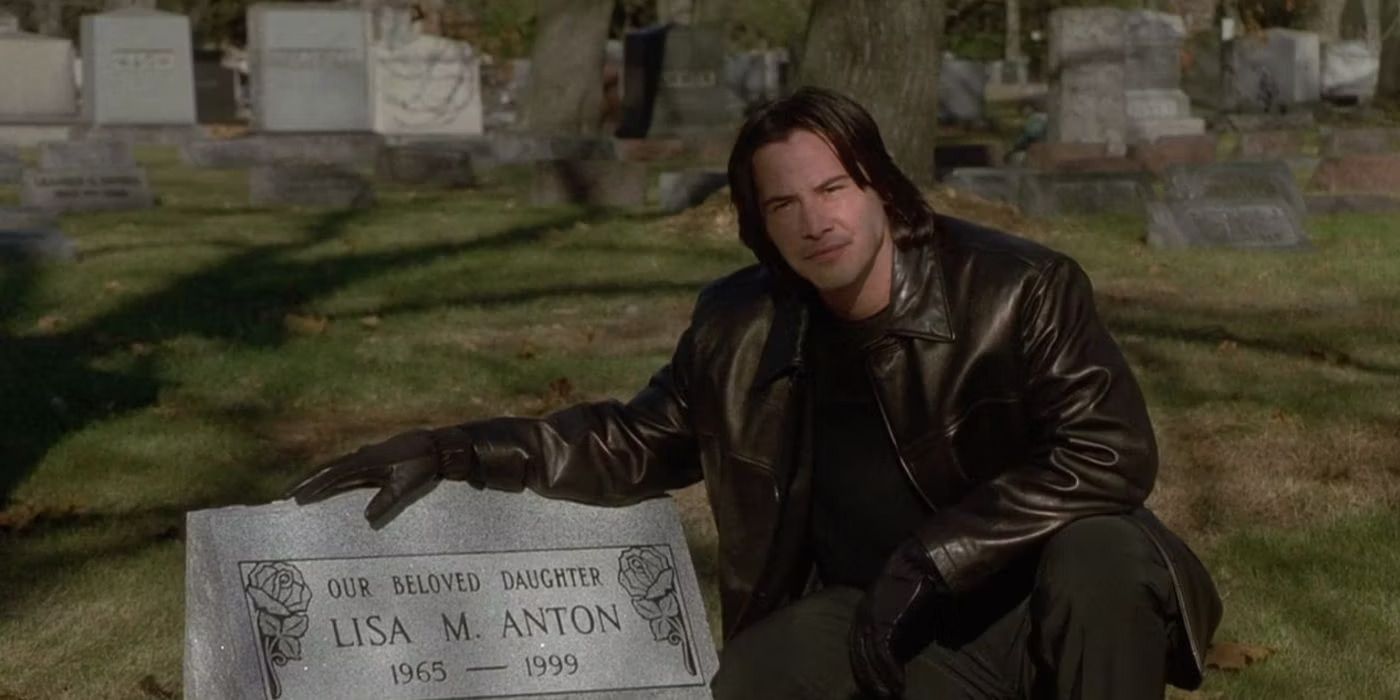Keanu Reeves is one of the most magnetic movie stars we have today. Even after his explosion into iconography with The Matrix, the cavernous lows of The Day the Earth Stood Still and Ronin 47, and the constant criticism of his talent as an actor, his star power has only grown in recent years. He’s withstood so many slings and arrows that he deserves the chance to pick his own projects, like joining the satirical world of Ruben Östlund or becoming everyone’s favorite edgy hedgehog. It’s a privilege he hasn’t always been able to enjoy, and in a worst-case scenario that actually happened to him, he was once tricked by someone he trusted into doing a role he never wanted in the first place. Even worse, that betrayal job led to him making one of the worst films of his career, playing the title character in The Watcher, going way outside his comfort zone as a serial killer born out of clichés.
What Is ‘The Watcher’ About?

Campbell (James Spader) is a detective who can’t get past how he inadvertently let an innocent woman get killed by a noted serial killer named David Allen Griffin (Reeves). When not on the job, he barely leaves his home, staying put in a bare-bones apartment that has only a TV, a couch, and an empty fridge. The only social life he really has is mandated therapy with Polly (Marisa Tomei), and his feelings for her are…frustratingly confusing and not developed at all. When Griffin comes back into the picture, taunting Campbell by calling him and telling him he’ll strike again soon unless Campbell can stop him, it’ll become his ultimate test of redemption. Or, at least, it would be, if the characters were further developed beyond fitting the basic archetypes of hero, villain, and damsel in distress. Reeves especially sticks out for how much he’s forced to do despite there being so little on the page.
Known for being mythically kind and humble, Reeves is at his worst when asked to be arrogant and smug. If you look at past roles for which he was demonstrably miscast, it’s typically in roles that call for him to be an alpha male stereotype who’s flagrantly disrespectful and carries himself above everyone else. As Griffin, Reeves fails to convince viewers that he’s a terrifying villain to be afraid of. He wafts in and out of scenes, flashing a grin that’s supposed to be menacing but is instead a bad picture day smile. Reeves doesn’t seem to know what kind of psycho killer he’s playing, as he rotates between a Zodiac Killer clone, an easily wounded incel in The Crow cosplay, or a grunge-themed Alex DeLarge copycat. We know Keanu can be convincing as a killer, but that’s only when we root for him as a justified avenger, fully projecting onto his tortured psyche.
Unfortunately, The Watcher does not play to any of Reeves’ strengths – physical expertise, fluid rapport with others, emanating a soft vulnerability. Instead, he’s distanced from the audience, barely shares screentime with any of his main costars, and is left with a character without any plausible foundations. Perhaps it is for these reasons that he never wanted to be involved in the movie from the beginning.

Keanu Reeves’ Role Got Increased After He Signed On For Scale
His involvement with The Watcher began with his friendship with Joe Charbanic, who was a filmmaker that had been a roadie for Keanu’s band, Dogstar. Charbanic got Reeves to read the script for The Watcher and play the killer as a friendly favor, since the role was quite small in the original script, and Keanu agreed to work for scale. However, since this was happening hot off the heels of his becoming a megastar with The Matrix, the script beefed up his role after he got cast, without his prior knowledge. To add insult to injury, his pay didn’t increase with that role expansion, so the newly crowned star was being paid scale while James Spader was reportedly getting paid $1.5 million more than him, which allegedly infuriated Reeves. On top of that, he found the script uninteresting, and never truly wanted to do it at all. However, in a twist of dastardly villainy, a “friend” who Keanu knew and trusted forged his signature on the contract, which forced Reeves to do the movie. Though he tried his best to get out of doing it, he realized that he couldn’t prove who forged the signature, and because he “didn’t want to get sued” for breach of contract, he had no choice but to report to set.
An added stipulation was that he couldn’t discuss any of this publicly for a full calendar year after the film was officially released. That did little to stave off the negative vibes, as the film was critically panned upon release, many of whom specifically singled out Reeves’ performance as a sore spot. It’s hard to imagine Reeves disagreeing, seeing as he is also not a fan of the film. In 2014, while doing press for the first John Wick film and was asked why he had barely done any horror films; with The Watcher in mind, Reeves responded, “Oh, it was a disaster. I hate that movie. It’s terrible. It’s a disaster.” He can at least take comfort in knowing the film’s failure didn’t land him in Hollywood jail, as he quickly bounced back with the releases of The Matrix Reloaded and The Matrix Revolutions back to back, solidifying his status as an in-demand A-lister.
Keanu Reeves Has Given Several Great Villain Performances

Does this mean Keanu Reeves flamed out simply because he played the villain? Not necessarily. You can actually find other films where he played a villainous individual to success. He winkingly portrayed himself as a pretentious scumbag in Always Be My Maybe to scene stealing brilliance. His small cameo in The Neon Demon as a lecherous motel manager who deals in human trafficking was drenched in unspeakable sludge. One of his best performances came in The Gift, where he played a wife-abusing and racist lowlife who menaces everyone around him as his only natural response. Reeves has shown he can summon a performance that can intimidate and get under the skin of his audience, as long as it isn’t for a character built entirely out of tired clichés. Reeves is often most persuasive when portraying figures who seem transcendent in their mythic status, and unfortunately, David Allen Griffin is simply too generic and dopey of a killer to be anything approaching interesting.


